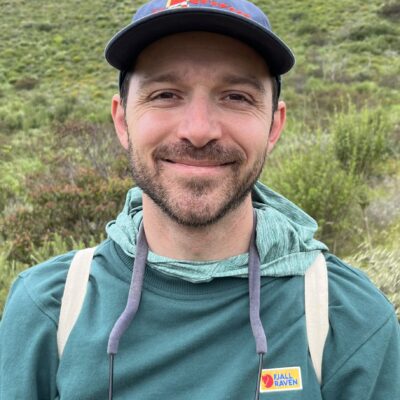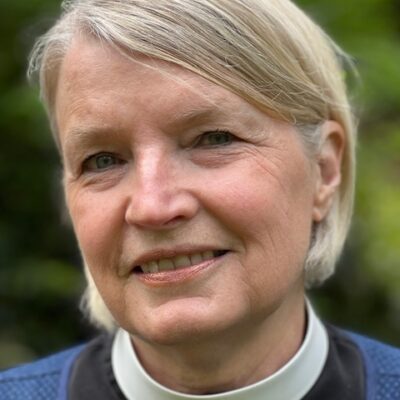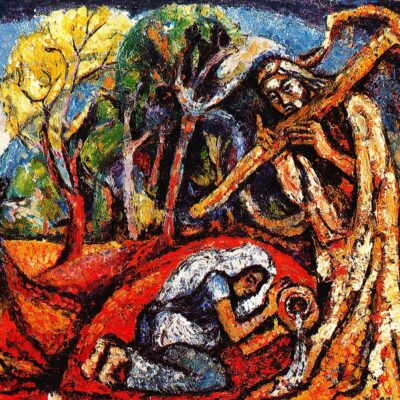Readings: Joel 2:1-2,12-17; Psalm 103:8-14; 2 Corinthians 5:20b-6:10; Matthew 6:1-6,16-21
Welcome to Ash Wednesday, where we cross over the doorstep into the season of Lent.
We are crossing this threshold not to enter, but to exit.
We exit the structures that are the daily rhythms of our lives—
the way we spend our hours,
our energy,
and our resources
—and look at them from a bit of distance.
We might look at our habituated ways of being in the world,
such as how we get up in the morning and begin our day,
how we consume,
how we spend the down moments in a day,
how we relate to our neighbors,
or how we spend our leisure time.
We can delve a little deeper into the bones of our structure, and take a look at
how we’re making a living,
how we’re relating to our family and friends,
and how we’re caring for those in need.
We separate these forty-six days from the three-sixty-five we are given each year, God willing, because I think most of us are amateur, piece-meal builders. We gather lifeways and habits with some intention, but then also by unthinking adoption. Certain habits get tacked on, like watching a little more TV each year, and others get neglected, like hand-writing letters to old friends, to use two personal examples. We need a season each year where we can step out of this structure, and give it a good look. We know that these habituated ways of being in the world shape how we live each day, and that a life is a collection of days, from birth to death, from dust to dust.
For this is not personal optimization. It is not an accounting of one’s life for the sake of better pursuing any achievement. It is clearing away a little space, turning off a screen or two, so that the light of Christ can illumine the room.
The spirit, I believe, rejoices at this temporary departure from the everyday structure that it had been living within. The spirit sometimes needs quiet for reflection, space for exploration, and encouragement to go places it hasn’t been before. Sometimes the way I am living doesn’t fully reflect what I know to be true about the spirit. I forget how precious this life is.
Being here today, on Ash Wednesday, means that you’ve given yourself an incredible gift, of the full forty-six days of Lent to exist outside the everyday structure of your life. You need to bring nothing except that which has been given to you by God: your ability to perceive and feel the spirit’s movement in your life and the world.
I had to exit the structure of my life some days ago, because I could not write this sermon.
The structure that I’d built about being a relatively informed person about the world, and the accretion of some unhealthy habits around the use of my phone, resulted in me truly not being to stop myself from reading the news.
I could not stop reading about our country’s seeming turn from our historical allies toward our enemies,
and the collapse of any notion that we’re a country that does some good in the world,
as we no longer are helping to battle ebola in Uganda,
no longer supporting a thousand food aid kitchens in Sudan,
nor providing HIV treatment that saves millions of lives throughout the world.
I felt the days as “days of darkness and gloom,” as the Hebrew prophet Joel prophesied; I felt an ominous “darkness spreading on the mountain.”
I recognize that this darkness, in my life right now at least, is yet on the mountain. Joel describes the cloud, outside of the portion of the text given today, as a cloud of locusts with “teeth like lions’ teeth / and fangs of a lioness.” They did not remain at a distance on the mountain, but descended to the land, devouring everything.
“What the cutting locust left,
the swarming locust has eaten;
what the swarming locust left,
the hopping locust has eaten;
and what the hopping locust left,
the destroying locust has eaten.”
So what was being asked of the Israelites was much more severe than what I’ve described so far. The Israelites didn’t choose to exit the everyday structures of their lives to reconsider their lifeways in closer proximity to God, as I’ve been imagining it. They were forced out of the structure of their lives. There was no food, and no sign of future food. I imagine there many reasonable people about to fall into a pit of despair, not knowing where their next meal will come from. But not Joel.
“Yet even now, says the Lord,
return to me with all your heart.
with fasting, with weeping, and with mourning;
rend your hearts and not your clothing.
“Yet even now” Joel prophesies. God is calling the people of Israel to “call a solemn assembly; gather the people, [and] sanctify the congregation,” while they’re fully dislocated by this disaster of imminent famine.
Joel does not spend any energy in asking why this is happening, nor does he assign blame. Joel attributes the dire situation to God, because God is in control of all, but he doesn’t interpret the locusts as a response to any specific wayward belief or injustice, as the other prophets do.
Joel confronts the situation as it is:
it is a disaster,
but it is the same God who brought the locusts as it will be who will deliver them back to abundance and security.
So when Joel prophesies to “sanctify a fast,” he is not claiming that God wants the people to further abstain from food, but rather, that the people’s meager portion be held as holy.
Remember who we are, I hear him saying,
we are a people,
held by a God who is “gracious and merciful,
slow to anger,
and abounding in steadfast love.”
Yet even now.
So, as Joel called the Israelites, we gather this community, the entire community—young and old,
those grieving and those celebrating,
clergy and laity,
so that we can feel together.
Let us weep together, for all that has been and will be lost to the locusts of our day.
It truly seems like this is all that is being asked of us today. The rest, like in Joel, will be figured out in due time.
For some in our community, like those who have already lost their federal jobs,
or those living in fear and uncertainty for any number of reasons,
or those dependent on USAID,
the cloud has come and the structures in their lives, to varying degrees, have collapsed.
For others, like myself I would say, the cloud is on the mountain right now. We have been given an extra measure of responsibility, being called to this sacred fast with a measure of grain still in the larder.
In your life, do you perceive a dark cloud, and does it encourage an urgency to turn from lifeways that do not lead to life? Is this cloud mercifully only on the horizon, or is it quickly advancing, as some always do? Or, did a destructive darkness arrive in your life some time ago, and the structure of your life has still yet to recover? Do you have time and space, to take a good hard look at the rhythms of your life, so that you might honor its great gift?
Let this “solemn assembly” be a reminder to the value of faith well-placed. Let us question the structures of our lives and discern their source and inspiration, or how they constrain or enable the loving movement of the spirit. And through it all, let us always remember that we are held and healed, through prayer and loving service, to that which will not perish when we pass from this world, and return to dust.
May God’s presence and movement be made known to you in the space you open up in this season…amen.






Leave a Reply